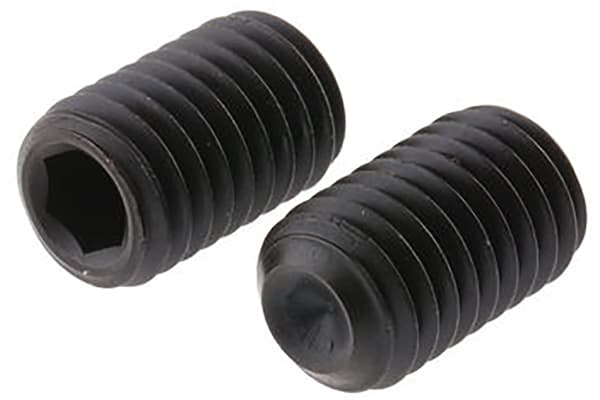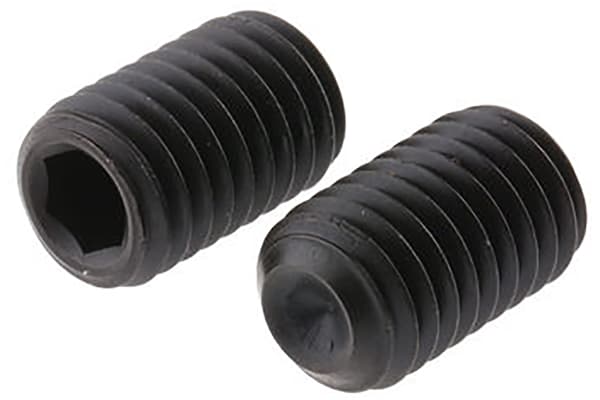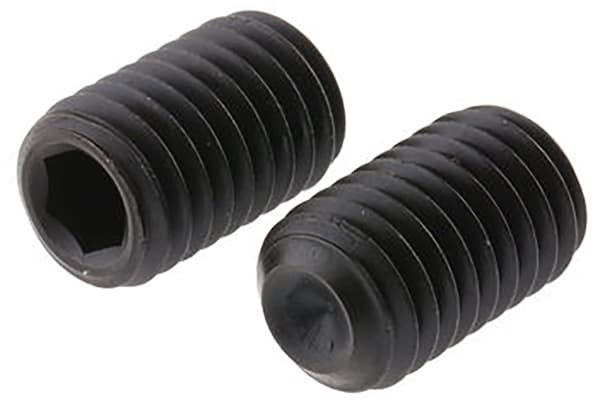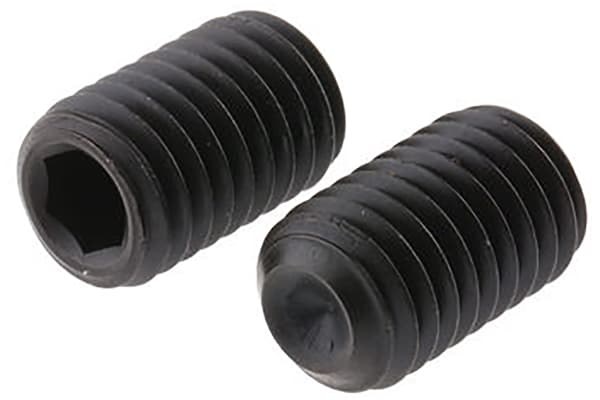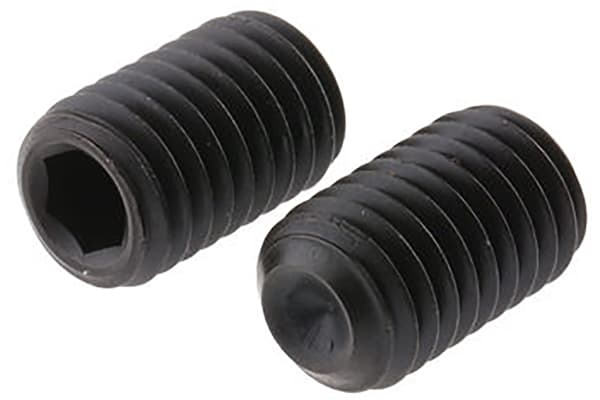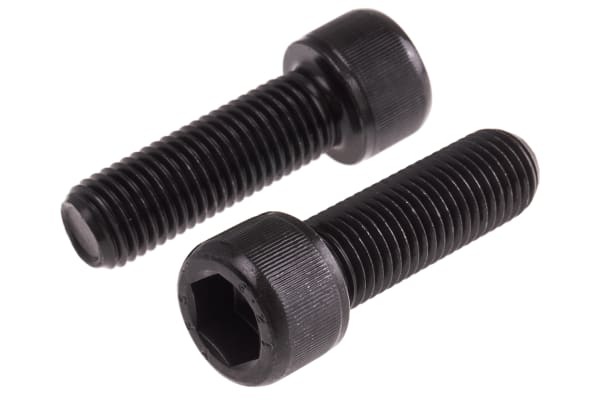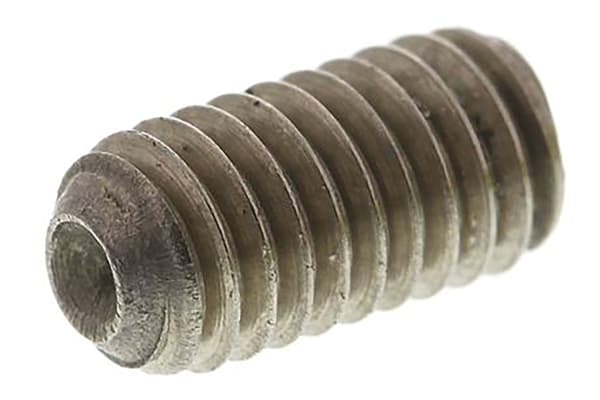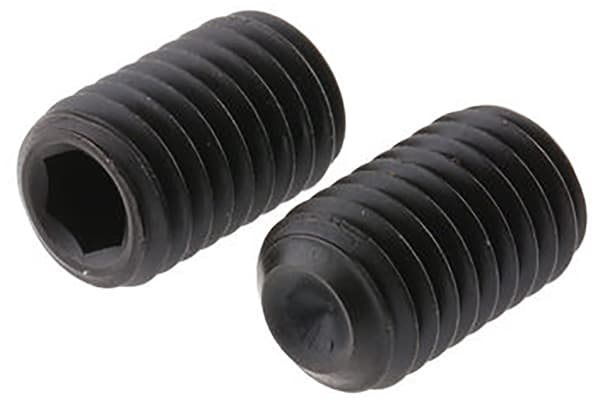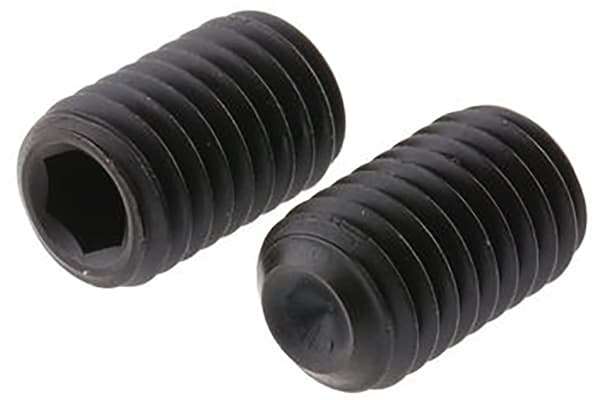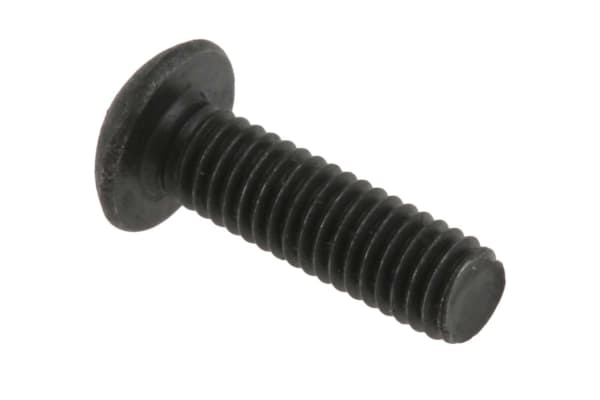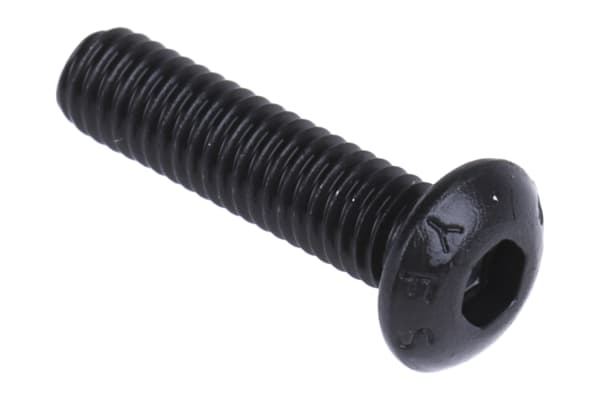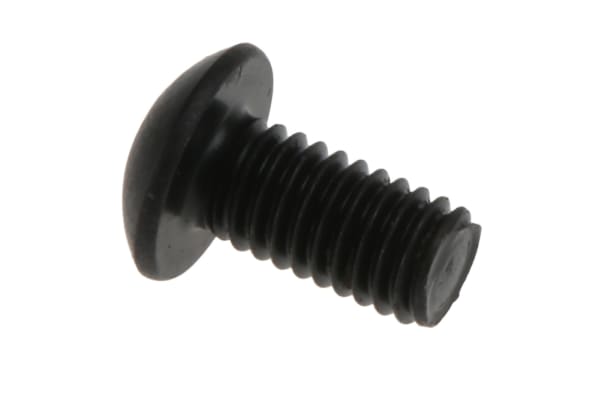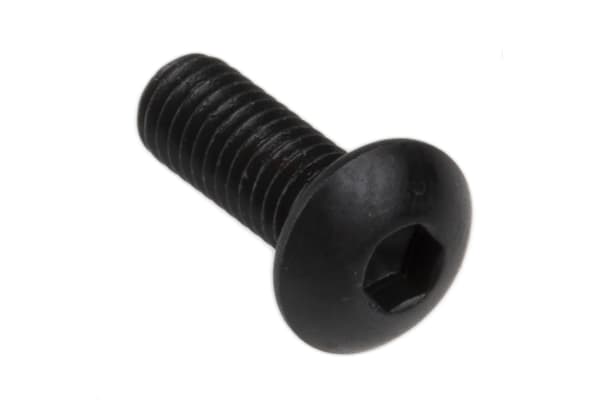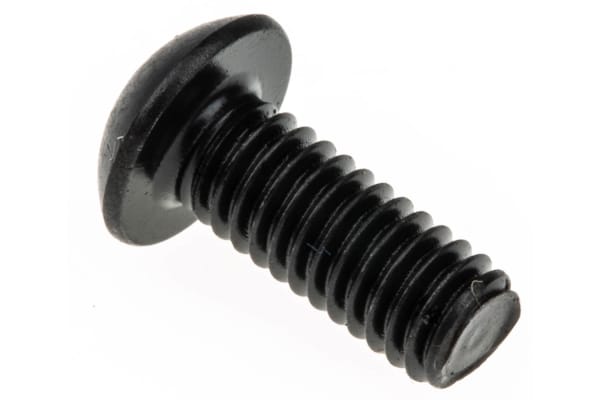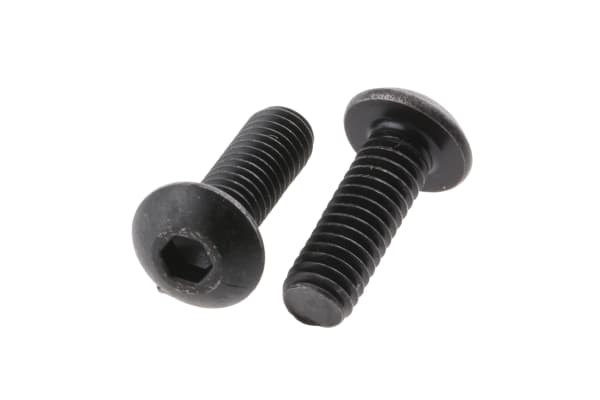Socket Screws
Socket screws have a cylindrical head and an internal hex drive. They are used when externally wrenched fasteners are not practical because of a lack of space. Socket screws are tightened using an Allan or Hex key. Discover everything you need to know in our socket screws guide.RS Components offer an extensive range of high-quality threaded fixings with standard metric threads and UNC (Unified National Coarse) thread.Head ShapesHex Socket Button – has a larger head diameter making them more appropriate for holding thin materials such as sheet metal guards.Hex Socket Cap – Socket cap screws have a head height equal to the shank diameter. They are used instead of a hex bolt when there is less clearance available.Hex Socket Countersunk – used when you need a screw to fit flush or below the surface of your material.Hex Socket Shoulder – often used as a pivot point or axis because shoulders are ground to a tight tolerance. They feature a small cylindrical head with tall vertical sides.What are the different types of materials available?Our socket screws are available in a range of materials to suit every application and environment. They include;Stainless Steel, including 316 and 304 gradesSteelBrassTitanium AlloyWhen would I use a Socket Screw?Socket screws are often used in applications where there is limited clearance such as in machine building and maintenance, tools and dies, and engineering applications.What are the advantages of using a Socket Screw?As compared to ordinary fasteners, fewer socket screws of the same size can achieve the same clamping force in a joint.As fewer screws are required for a given job, fewer holes are required to be drilled and tapped.There is weight reduction as fewer screws are used.There are weight reductions due to the smaller size of the component parts. The cylindrical heads of socket screws require less space than hex heads and require no additional wrench space.
-
Black, Self-Colour Steel Hex M10 x 20mm Grub Screw
IDR684,302.36Bag (1 Bag of 100) -
Black, Self-Colour Steel Hex M4 x 10mm Grub Screw
IDR341,102.28Bag (1 Bag of 100) -
Black, Self-Colour Steel Hex M4 x 8mm Grub Screw
IDR118,945.26Bag (1 Bag of 100) -
Black, Self-Colour Steel Hex M8 x 20mm Grub Screw
IDR473,893.02Bag (1 Bag of 100) -
Black, Self-Colour Steel Hex M8 x 25mm Grub Screw
IDR625,354.18Bag (1 Bag of 100) -
Black, Self-Colour Steel Hex M8 x 30mm Grub Screw
IDR736,327.80Bag (1 Bag of 100) -
BLK STEEL SOCKET HEAD CAP SCREW,M16X50MM
IDR711,993.32Each (1 Each of 25) -
BZP CAP SCREW,M2.5X12
IDR567,140.23Each (1 Each of 100) -
Holo-Krome Black, Self-Colour Steel Hex Socket Cap Screw, BS 2470 No. 4 x 13mm
IDR444,314.04Box (1 Box of 50) -
Holo-Krome Black, Self-Colour Steel Hex Socket Cap Screw, BS 2470 No. 8 x 13mm
IDR451,446.56Box (1 Box of 50) -
Holo-Krome Black, Self-Colour Steel Hex Socket Cap Screw, DIN 912 M3 x 8mm
IDR293,377.33Box (1 Box of 100) -
Plain Stainless Steel Hex M3 x 8mm Grub Screw
IDR267,574.39Bag (1 Bag of 50) -
Plain Stainless Steel Hex M5 x 6mm Grub Screw
IDR284,147.01Bag (1 Bag of 50) -
Plain Stainless Steel Hex M6 x 20mm Grub Screw
IDR284,671.46Bag (1 Bag of 25) -
Plain Stainless Steel Hex M8 x 25mm Grub Screw
IDR250,162.65Bag (1 Bag of 25) -
RS PRO Black, Self-Colour Steel Hex Screw, DIN 916 M3 x 10mm
IDR273,448.23Bag (1 Bag of 100) -
RS PRO Black, Self-Colour Steel Hex Screw, DIN 916 M6 x 20mm
IDR290,755.08Bag (1 Bag of 100) -
RS PRO Black, Self-Colour Steel Hex Socket Button Screw, ISO 7380 M3 x 10mm
IDR303,971.22Box (1 Box of 100) -
RS PRO Black, Self-Colour Steel Hex Socket Button Screw, ISO 7380 M3 x 12mm
IDR398,686.89Box (1 Box of 100) -
RS PRO Black, Self-Colour Steel Hex Socket Button Screw, ISO 7380 M3 x 5mm
IDR257,714.73Bag (1 Bag of 100) -
RS PRO Black, Self-Colour Steel Hex Socket Button Screw, ISO 7380 M3 x 6mm
IDR229,604.21Bag (1 Bag of 100) -
RS PRO Black, Self-Colour Steel Hex Socket Button Screw, ISO 7380 M3 x 8mm
IDR237,261.18Box (1 Box of 100) -
RS PRO Black, Self-Colour Steel Hex Socket Button Screw, ISO 7380 M4 x 10mm
IDR205,689.29Box (1 Box of 100) -
RS PRO Black, Self-Colour Steel Hex Socket Button Screw, ISO 7380 M4 x 12mm
IDR270,406.42Box (1 Box of 100)




